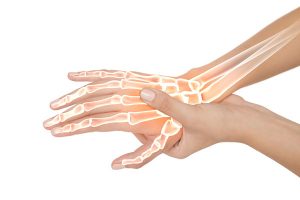You’re never too young to build healthy bones
Most young people don’t pay as much attention to bone health as it deserves, thinking it’s only an issue for the elderly.
“I often use the analogy that bone health is like a bank account, particularly in women,” says Dr. Clifford Stark, DO, a sports medicine specialist in New York City. “Through the 20s until about the age of 30, bone ‘money’ is being deposited, after which starts the period of continuous withdrawals for the remainder of one’s life. This process accelerates as the years go by, especially after menopause in women.”
It is extremely important to take advantage of our younger years as they set the stage for later in life. Many young people, especially women as young as their 20s and 30s, are already showing signs of osteopenia (milder forms of reduced bone mass) and even osteoporosis (more severe forms when the strength of bones become significantly reduced, brittle and susceptible to injury). These are harbingers of what is to come later in life, with many patients developing stress fractures and other bone injuries.
Assessing your bones
Bone density is typically measured using a nuclear medicine test called a DEXA (Dual Energy X-ray Absorptiometry) scan, which yields what is called a T-score. A T-score compares a patient’s bone density to that of a normal, healthy 30-year-old. A T-score of -1.0 and higher is considered normal, while a score of -1.0 to -2.5 suggests osteopenia, and a score of -2.5 or lower represents osteoporosis.
While bone density is one very important measure of bone health, it is important to keep in mind other key factors, such as bone quality, Dr. Stark says. Bone quality has many different components, including accumulated microscopic damage, the quality of collagen, the size of mineral crystals, the rate of bone turnover, and microarchitecture, which is related to the mechanical strength of bone.
Hormones and bones
Most notably in women, bone health is significantly affected by hormonal issues, which vary with menstrual cycles and deteriorate dramatically after menopause. The female athlete triad, also known as RED-S (relative energy deficiency in sport), is a syndrome affecting bone health, especially in young, active women, and is more common than most of us think, according to Dr. Stark. It is characterized by disordered eating, amenorrhea (missed menstrual periods), and lowered bone mineral density. If left untreated, it often leads to serious bone problems, such as stress fractures and osteoporosis, setting the stage for more serious issues later in life.
Lifestyle and bones
Many factors affect bone health. These include diet, exercise, genetics, and general overall health. Some medications also adversely affect bones, most notably steroids and hormonal medications such as those used for endometriosis. Even caffeine and alcohol consumption can negatively impact bone health, especially if done in excess.
Diet is extremely important for building and maintaining strong bones, Dr. Stark says, especially in people whose diets contain limited or no dairy. Diets high in fruits, vegetables, protein, Vitamin D (preferably D3), magnesium and Vitamin K are very helpful, as are various collagen supplements. Be sure to consult with your physician before beginning any vitamin or supplement program to ensure that their quality and dosage are suitable for your needs.
When it comes to exercise, it has long been shown that weight-bearing activities that load the skeletal system are crucial for maintaining and optimizing bone health, Dr. Stark says. “I tend to favor a wide variety of weight-bearing exercises that incorporate balance with gravitational forces in multiple directions, thereby engaging the entire skeletal system.”
Although every individual and situation is different, “no one should assume that they are doomed to failing bones as they age,” Dr. Stark says. As with many other health factors that deteriorate with age, there are myriad measures to take to minimize this process, and the younger this starts, the better the results.
“The most important measures to take are a proper diet with ample calcium, vitamin D and vitamin K, regular and varied weight-bearing exercises, and making sure caffeine and alcohol are consumed in moderation,” he advises.

